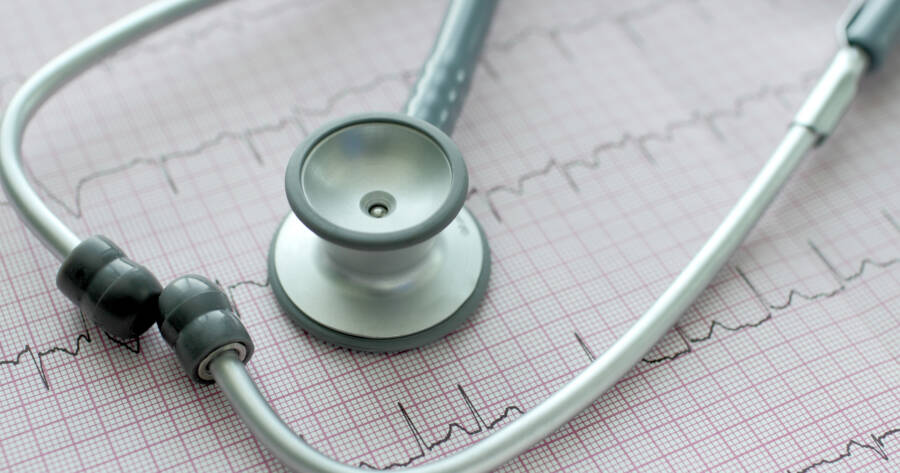Don’t wait to understand atrial fibrillation until it’s too late. You can learn more about your potential risks, and what this heart condition can look like, by searching about its early symptoms online now.
Heart problems are one of the biggest killers in the world. However, many people don’t realize when something isn’t quite right with one of the body’s most important organs until after a critical event.
What is Atrial Fibrillation?
Atrial fibrillation (Afib) is an irregular, fast heart rate. But the condition can be so much more than a bit of abnormal heart behavior.
When Afib occurs, it changes the heart’s normal rhythm. Typically, the heart contracts and relaxes to a set beat. With Afib, the heart’s chambers beat differently, causing blood flow issues.
When one area of your heart is beating faster than the other, it can cause serious problems. One of the biggest concerns is the creation of blood clots, which can form in the heart’s upper chambers. Those clots can break off and cause issues throughout the body. Complications like a stroke, clogged arteries, or heart attack can occur.
Causes and Risk Factor
If you’re wondering whether you need to be concerned about Afib, it’s a good idea to know the condition’s causes and risk factors. Some people may have a higher chance of developing Afib than others.
While doctors can diagnose atrial fibrillation with ease, it’s difficult to determine its cause. In some cases, doctors can’t figure out what exactly is causing Afib.
The most common causes of atrial fibrillation include:
- Age (being age 60+)
- Genetics, or a family history
- Heart disease
- Heart attack
- High blood pressure
- Diabetes
- Overactive thyroid
- Sleep apnea
- Lung illnesses, like COPD or emphysema
- Sick sinus syndrome
If you currently live with any of these conditions, do some additional research and talk with your doctor about your risk for Afib so you’re prepared.
The Early Signs and Symptoms of Atrial Fibrillation
In order to prevent complications, it’s important to catch atrial fibrillation as early as possible. The longer the condition goes untreated, the more serious complications may become.
Unfortunately, it can be difficult to detect Afib when it first begins. Many people don’t experience symptoms, and they only discover the condition during a routine doctor’s visit.
If you do experience symptoms, they can be confusing. Afib symptoms can mimic the symptoms of plenty of other health conditions. You might have any of the following:
- Heart palpitations, which often feel like a racing heart, chest flip-flopping, or an irregular heartbeat
- Feeling lightheaded or dizzy
- Shortness of breath
- Chest pain
- Fatigue
- Feelings of weakness
Your symptoms may not be predictable. In fact, they may not even occur frequently. Each case of atrial fibrillation is different, and symptoms can vary and change. Search online to learn more about these symptoms and how they could manifest.
What to Do If You Develop Atrial Fibrillation
If you are diagnosed with Afib, it’s important to discuss your next steps with your doctor. Based on your specific symptoms and overall health, your doctor will be able to recommend treatment options. Managing Afib can be a long process, and it may require a few different approaches.
There are a few different types of treatment that are used for Afib. Generally, the goal of any treatment is to reset your heart’s rhythm, control heart rate, and prevent complications. Specific treatment options include:
- Cardioversion, or procedures to reset the heart’s rhythm
- Medication to prevent irregular rhythm or control heart rate
- Surgical procedures, which can include placing catheters into the heart or ablations to change heart rhythm
- Medications to prevent blood clots
If you don’t treat Afib, you can wind up with deadly complications. Atrial fibrillation can lead to a stroke, causing blood to pool in the heart and create clots that block blood flow. It can also cause heart failure, as the condition weakens the heart over time.
Some people may even be able to prevent Afib. Living a healthy lifestyle and focusing on your heart’s health can help prevent the condition altogether. Medical professionals recommend eating a healthy diet, avoiding smoking and drinking alcohol, and staying physically active as preventative measures.
Learn More Today
It’s up to you to take charge of your health. If you’re concerned about Afib, take some time to search online and learn more about the signs and symptoms, preventative measure you can take, and latest treatments that are being developed.
Make sure to speak with your doctor about your risk and heart health. Heart issues can be scary, but take your heart health seriously and start your journey to reduce your risk today.
